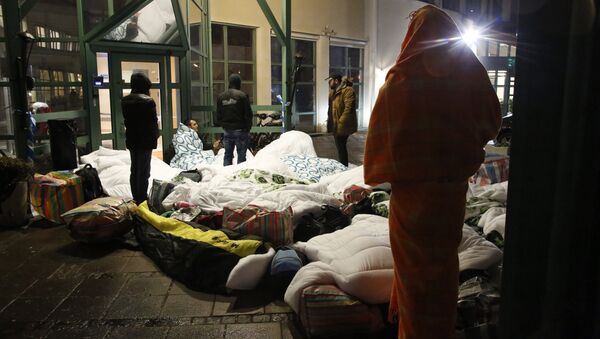"This means that their chances of getting a job are falling sharply," Annie Rubensson of the Employment Service told Swedish Radio.
Professor Olof Åslund, from the Institute for Labor Market Policy Evaluation (IFAU), argued that people often don't see the benefits of education. According to him, the idea that studies don't pay off is widely spread in some groups, despite the fact that some studies state that immigrants profit from education even more than native speakers. Another explanation for the migrants' lack of interest is that people say they would rather work, which leads to a kind of vicious circle that increases unemployment further.
In June, 351,000 people or 7.2 percent of Sweden's entire labor force, were registered as unemployed, which is 5,000 more than the corresponding month last year. Swedish media outlet Dagens Nyheter columnist Marianne Björklund argued that the tens of thousands of refugees who have been granted residence permits and are beginning to seek jobs were the main reason for the rising unemployment.
"For many of them it takes longer to enter the labor market. They speak poorer Swedish and lack the same network of contacts as native Swedes. In addition, there is a large group of new arrivals who lack higher education, which significantly worsens their ability to get jobs," Marianne Björklund argued, adding that it was hardest to secure employment for people who lack secondary education.
Another idea was to create simple, low-wage jobs to help the new arrivals establish themselves on the job market. Earlier, the Swedish government put pressure on the municipalities to hire more migrants and pledged to allocate 500 million SEK ($61 million) in the new budget on so-called "extra jobs," the target being 6,500 jobs by the turn of the year and 20,000 by 2020. Municipalities complying with the government targets are expected to be compensated, Swedish Radio reported.
"For every person employed on an extra job, the municipality receives a bonus, and then it is up to the municipalities how to use that money. I hope they choose to hire even more in child care, school and elderly care," Swedish Finance Minister Magdalena Andersson said.
Earlier, Swedish Social Democrat Prime Minister Stefan Löfven pledged for Sweden to reach the lowest unemployment rate in Europe. So far, this ambitious goal seems to be just a pipe dream. Even though Sweden's unemployment rate is slightly below the EU average of 7.8 percent, a number of EU member states have a much lower unemployment rate, such as the Czech Republic with 3 percent and Germany with 3.9 percent.




